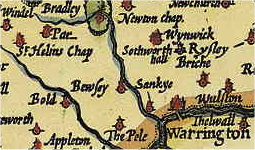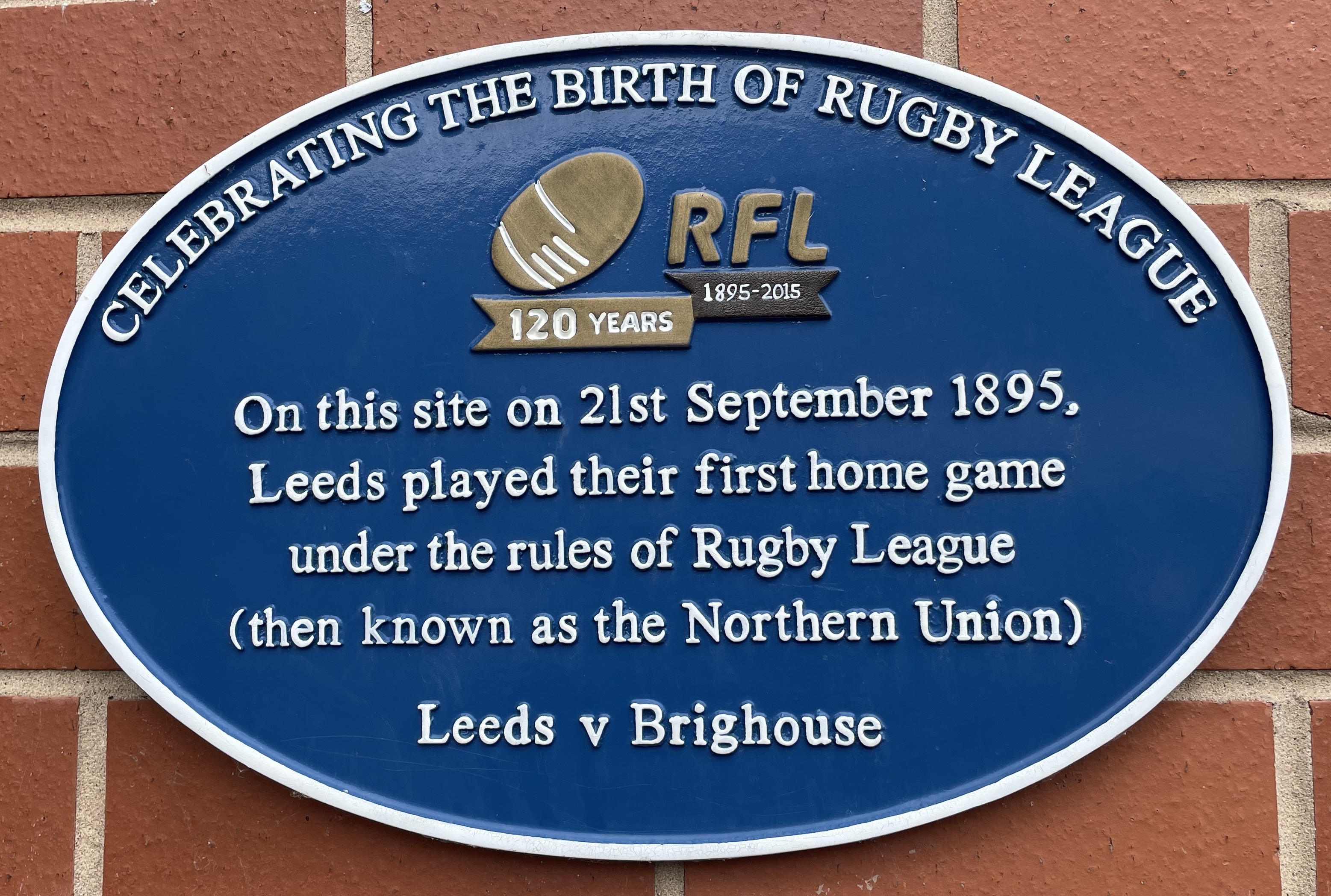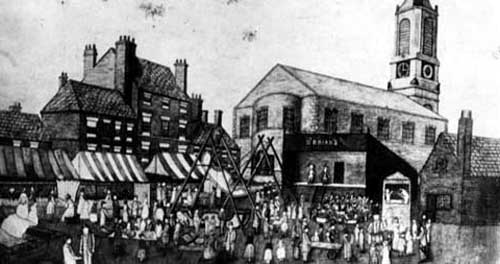|
Jim Stott
James Stott (15 November 1919 – 6 July 1994) was an English professional rugby league footballer who played in the 1930s, 1940s and 1950s. He played at representative level for Great Britain, England and Lancashire, and at club level for United Glass Bottle ARLFC (now Eccleston Lions ARLFC (in Eccleston, St Helens) of the North West Men's League), and St Helens, as a . Jim Stott was a Private in the British Army during World War II, and appeared for Wigan as a World War II guest player. Background Stott was born in Prescot, Lancashire, England, he was a pupil at Merton Bank School, St. Helens, and he died aged 74. Playing career International honours Jim Stott won caps for England while at St. Helens, in a 1943 match against Wales and in 1946 and 1947 matches against France, and won caps for Great Britain while at St. Helens, in a 1947 match against New Zealand. Other notable matches Jim Stott played in United Glass Bottle's 5–48 defeat by Hunslet in the 1938–39 ... [...More Info...] [...Related Items...] OR: [Wikipedia] [Google] [Baidu] |
Prescot
Prescot is a town and civil parish within the Metropolitan Borough of Knowsley in Merseyside, England. It lies about to the east of Liverpool city centre. At the 2001 Census, the civil parish population was 11,184 (5,265 males, 5,919 females). The population of the larger Prescot East and West wards at the 2011 census totalled 14,139. Prescot marks the beginning of the A58 road which runs through to Wetherby, near Leeds in West Yorkshire. The town is served by Prescot railway station and Eccleston Park railway station in neighbouring Eccleston. History Prescot's name is believed to be derived from the Anglo-Saxon ''prēost'' "priest" + ''cot'' "cot", meaning a cottage or small house owned or inhabited by a priest, a "priest-cottage". ( ME prest, preste, priest, OE prēost, LL presbyter, Gk πρεσβύτερος presbýteros "elder, priest") In the 14th century, William Dacre, 2nd Baron Dacre, obtained a charter for the holding of a three-day market and moveable ... [...More Info...] [...Related Items...] OR: [Wikipedia] [Google] [Baidu] |
St Helens, Merseyside
St Helens () is a town in Merseyside, England, with a population of 117,308. It is the administrative centre of the Metropolitan Borough of St Helens which had a population of 183,200 at the United Kingdom Census 2021, 2021 Census. The town is north of the River Mersey, in the south-west part of Historic counties of England, historic Lancashire. The town was initially a small settlement within the historic county's ancient hundred (county division), ''hundred'' of West Derby (hundred), West Derby in the Township (England), township of Windle, St Helens, Windle but by the mid-1700s the town had developed into a larger urban area beyond the townships borders. By 1838 the council was formally made responsible for the administration of Windle and the three other townships of Eccleston, St Helens, Eccleston, Parr, St Helens, Parr and Sutton, St Helens, Sutton that were to form the town's traditional shape. In 1868 the town was incorporated as a municipal borough, then later became ... [...More Info...] [...Related Items...] OR: [Wikipedia] [Google] [Baidu] |
British Army Soldiers
British may refer to: Peoples, culture, and language * British people, nationals or natives of the United Kingdom, British Overseas Territories and Crown Dependencies. * British national identity, the characteristics of British people and culture * British English, the English language as spoken and written in United Kingdom of Great Britain and Northern Ireland and, more broadly, throughout the British Isles * Celtic Britons, an ancient ethno-linguistic group * Brittonic languages, a branch of the Insular Celtic language family (formerly called British) ** Common Brittonic, an ancient language Other uses *People or things associated with: ** Great Britain, an island ** British Isles, an island group ** United Kingdom, a sovereign state ** British Empire, a historical global colonial empire ** Kingdom of Great Britain (1707–1800) ** United Kingdom of Great Britain and Ireland (1801–1922) * British Raj, colonial India under the British Empire * British Hong Kong, colonial H ... [...More Info...] [...Related Items...] OR: [Wikipedia] [Google] [Baidu] |
1994 Deaths
This is a list of lists of deaths of notable people, organized by year. New deaths articles are added to their respective month (e.g., Deaths in ) and then linked below. 2025 2024 2023 2022 2021 2020 2019 2018 2017 2016 2015 2014 2013 2012 2011 2010 2009 2008 2007 2006 2005 2004 2003 2002 2001 2000 1999 1998 1997 1996 1995 1994 1993 1992 1991 1990 1989 1988 1987 1986 Earlier years ''Deaths in years earlier than this can usually be found in the main articles of the years.'' See also * Lists of deaths by day * Deaths by year (category) {{DEFAULTSORT:deaths by year ... [...More Info...] [...Related Items...] OR: [Wikipedia] [Google] [Baidu] |
1919 Births
Events January * January 1 ** The Czechoslovak Legions occupy much of the self-proclaimed "free city" of Bratislava, Pressburg (later Bratislava), enforcing its incorporation into the new republic of Czechoslovakia. ** HMY Iolaire, HMY ''Iolaire'' sinks off the coast of the Hebrides; 201 people, mostly servicemen returning home to Lewis and Harris, are killed. * January 2–January 22, 22 – Russian Civil War: The Red Army's Caspian-Caucasian Front begins the Northern Caucasus Operation (1918–1919), Northern Caucasus Operation against the White Army, but fails to make progress. * January 3 – The Faisal–Weizmann Agreement is signed by Faisal I of Iraq, Emir Faisal (representing the Arab Kingdom of Hejaz) and Zionism, Zionist leader Chaim Weizmann, for Arab–Jewish cooperation in the development of a Jewish homeland in Palestine (region), Palestine, and an Arab nation in a large part of the Middle East. * January 5 – In Germany: ** Spartacist uprising in ... [...More Info...] [...Related Items...] OR: [Wikipedia] [Google] [Baidu] |
Halifax, West Yorkshire
Halifax is a town in the Metropolitan Borough of Calderdale, in West Yorkshire, England. It is in the eastern foothills of the Pennines. In the 15th century, the town became an economic hub of the old West Riding of Yorkshire, primarily in woollen manufacture with the large Piece Hall square later built for trading wool in the town centre. The town was a thriving mill town during the Industrial Revolution with the Dean Clough Mill buildings a surviving landmark. In 2021, it had a population of 88,109. It is also the administrative centre of the wider Calderdale Metropolitan Borough. Toponymy The town's name was recorded in about 1091 as ''Halyfax'', most likely from the Old English ''halh-gefeaxe'', meaning "area of coarse grass in the of land". This explanation is generally preferred to derivations from the Old English ' (holy), in ''hālig feax'' or "holy hair", proposed by 16th-century antiquarians. The probably-incorrect interpretation gave rise to two legends. One concern ... [...More Info...] [...Related Items...] OR: [Wikipedia] [Google] [Baidu] |
Thrum Hall
Thrum Hall was a rugby league stadium on Hanson Lane in Halifax, West Yorkshire, England. It was the home of Halifax R.L.F.C., Halifax for 112 years. The site on which the ground stood is now occupied by a supermarket. History In 1878, Halifax R.L.F.C., Halifax, who had just won the inaugural Yorkshire Cup (rugby union), Yorkshire Cup, bought a patch of land for £3,000 from a local farmer, Major Dyson, to develop as a new multi-purpose sports ground. It was to be a replacement for their Hanson Lane ground which stood opposite. The site measured 55,000 square yards and included a cricket pitch and bowling greens. The rugby stadium was opened on 18 September 1886 by Alderman Riley, who kicked off before the Halifax v Hull F.C. match. Forward Ernest Williamson scored the first try (his only try for Halifax) and the home side went on to win in front of a crowd of around 8,000. As Thrum Hall was built on an old hilltop farm, it had a distinctive slope of 4 yards away from the main ... [...More Info...] [...Related Items...] OR: [Wikipedia] [Google] [Baidu] |
Rugby League XIII
The Rugby Football League (RFL) is the governing body for rugby league in England. Founded in 1895 as the Northern Rugby Football Union following 22 clubs resigning from the Rugby Football Union, it changed its name in 1922 to the Rugby Football League. Based at Sportcity in Manchester, it is responsible for organising professional competitions and, in association with the British Amateur Rugby League Association (BARLA), the community game. It also provides match officials for every level as well as administering the England national team The Rugby Football League has been a member of the International Rugby League (IRL) since 1948 and European Rugby League (ERL) since its foundation in 2003. History Formation On Tuesday 27 August 1895, as a result of an emergency meeting in Manchester, prominent Lancashire rugby clubs Broughton Rangers, Leigh, Oldham, Rochdale Hornets, St Helens, Tyldesley, Warrington, Widnes and Wigan declared that they would support their Yorkshire ... [...More Info...] [...Related Items...] OR: [Wikipedia] [Google] [Baidu] |
Northern Command XIII
Northern may refer to the following: Geography * North, a point in direction * Northern Europe, the northern part or region of Europe * Northern Highland, a region of Wisconsin, United States * Northern Province, Sri Lanka * Northern Range, a range of hills in Trinidad * Northern State (Sudan), one of the 18 wilayat (states) of Sudan Schools * Northern Collegiate Institute and Vocational School (NCIVS), a school in Sarnia, Canada * Northern Secondary School, Toronto, Canada * Northern Secondary School (Sturgeon Falls), Ontario, Canada * Northern University (other), various institutions * Northern Guilford High School, a public high school in Greensboro, North Carolina Companies * Arriva Rail North, a former train operating company in northern England * Chemins de fer du Nord (Northern Railway Company), a former rail transport company in northern France * Nord-Aviation (Northern Aviation), a former state-owned French aircraft manufacturer. * Compañía de los Caminos d ... [...More Info...] [...Related Items...] OR: [Wikipedia] [Google] [Baidu] |
Hunslet
Hunslet () is an inner-city area in south Leeds, West Yorkshire, England. It is southeast of the Leeds city centre, city centre and has an industrial past. It is situated in the Hunslet and Riverside (ward), Hunslet and Riverside ward of Leeds City Council and Leeds South (UK Parliament constituency), Leeds South parliamentary constituency. The population of the previous City and Hunslet council ward at the 2011 census was 33,705. Many engineering companies were based in Hunslet, including John Fowler & Co. manufacturers of traction engines and steam rollers, the Hunslet Engine Company builders of locomotives (including those used during the construction of the Channel Tunnel), Kitson & Co., Manning Wardle and Hudswell Clarke. Many railway locomotives were built in the Jack Lane area of Hunslet. The area has a mixture of modern and 19th century industrial buildings, terraced house, terraced housing and 20th century housing. It is an area that has grown up significantly aroun ... [...More Info...] [...Related Items...] OR: [Wikipedia] [Google] [Baidu] |
Parkside, Hunslet
Parkside was a rugby league stadium in Hunslet, Leeds, England. It was home to Hunslet F.C. (1883), Hunslet F.C. rugby league club and the source of their nickname, the Parksiders. Hunslet R.L.F.C., Hunslet now play at the South Leeds Stadium which is less than half a mile from the former site of Parkside. The stadium Adjacent to the rugby pitch, there was a bowling green and a cricket ground. Parkside's surface had the reputation as being the best in the game and was often used by touring Australian teams as a training ground. The Mother Benson's End was named after the old lady who washed the players' kit and lived in one of the Low Fold farm cottages which were situated at that end of the ground. History Hunslet purchased at little cost of waste land at Hunslet Carr from the Low Moor Iron and Coal Company and had to shift 2,000 tons of rubbish to create what would become Parkside, which they moved to in 1888. The first game at Parkside was played on 11 February 1888, whe ... [...More Info...] [...Related Items...] OR: [Wikipedia] [Google] [Baidu] |





